Prof. Schreurs on The Economist Podcast
Prof. Dr. Miranda Schreurs talks about climate policy in the U.S., Europe and China in an interview with The Economomist podcast "Babbage".
You can find the full podcast episode here.
Dr. Cindy Cheng and Luca Messerschmidt at Spiegel Online
In an interview with Spiegel Online, Dr. Cindy Cheng and Luca Messerschmidt from the Department of International Relations talk about their research project "CoronaNet", the world's largest social science data project on the measures used in the fight against the coronavirus.
The full article can be found here(in german).
HfP students at Redaktionsnetzwerk Deutschland
100 Voices, One Planet - the editorial network Germany interviews the HfP students Arianne Blais, Ophelia Wach and Vanessa Zwisele and presents their video project on climate change in detail.
Dr. Siewert in interview with Radio LORA 92.4
In an interview with the radio station LORA 92.4, Dr. Markus B. Siewert gave an assessment of the US elections of 3.11.2020.
Prof. Wurster guest in the Salon Zukunft Heimat
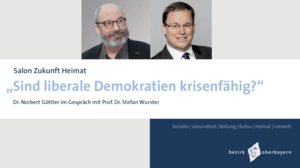
Prof. Dr. Stefan Wurster spoke with Norbert Göttler in the Salongespräch des Bezirks Oberbayern about "Which system performs better in times of crisis: federal democracy or the autocratic central state?
The recording and further information can be found here.
"Healing Wounds" - Abendzeitung on HfP election analysis
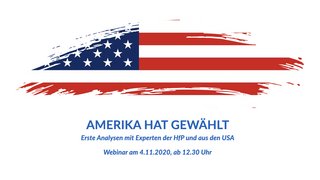
Disappointment, concern, undemocratic behavior - the Abendzeitung München analyzes the discussion round at the HfP on the American presidential election.
Read the article here:
https://www.abendzeitung-muenchen.de/politik/us-wahlanalyse-von-experten-gesellschaftliche-wunden-heilen-art-681691
Here is the recording of the event on November 4, 2020:
https://www.hfp.tum.de/aktuelles/news-single-view-hfp/article/bundesweites-interesse-an-erster-analyse-zur-us-wahl-an-der-hfp/
Prof. Pfeffer on the influences of social media
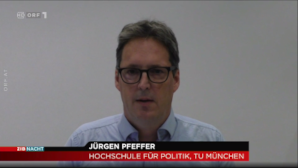
Jürgen Pfeffer, Professor of Computational Science and Big Data at the Bavarian School of Public Policy at the Technical University of Munich, speaks in an interview with Austrian TV ORF about his investigation of the influence of social media on conspiracy myths.
For the full interview click here
The availability of the content in media libraries may be limited in time.
Prof. Pfeffer on media and conspiracy theories on ZDF
How does social media support the spread of conspiracy theories? Jürgen Pfeffer, Professor of Computational Social Science and Big Data, and the doctoral student Wienke Strathern explain their research results in the ZDF documentary "Between Madness and Truth - The Power of Conspiracy Theories".
ZDFinfo from October 12th, 2020, 8:15 p.m.
Between delusion and truth - the power of conspiracy theories
From minute 23.20
You can find the full article here
The availability of the content in media libraries may be limited in time.
Prof. Tim Büthe in an interview with Radio Gong
How does the US president's Covid 19 infection affect his election campaign? An assessment by Tim Büthe, Professor for International Relations on Radio Gong:
nuclear repository: Miranda Schreurs with Günther Beckstein at the Press Club of Munich
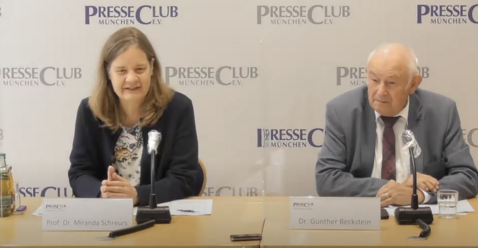
Nuclear repository in the Bavarian Forest? Miranda Schreurs and the former Bavarian Prime Minister Günther Beckstein in the Press Club of Munich on October 2, 2020.
You can find the complete recording on the official YouTube channel of the Munich Press Club:
https://www.youtube.com/watch?v=KPyU-a2ky9w
Further information on the event can be found on the official event homepage:
https://www.presseclub-muenchen.de/veranstaltung-detail/atomares-endlager-im-bayerischen-wald-presseclub-gespraech-mit-ex-ministerpraesident-guenther-beckstein-und-tum-professorin-mira.html
Nuclear repository: Miranda Schreurs in "The Debate"
When was the search for a repository a success for those involved in the discussion? “When society says: We accept this scientifically well-founded decision by politics,” says Miranda Schreurs, professor for professor for environmental and climate policy at the HfP in the live discussion at “The Debate”.
For a full discussion with Christoph Koch, Head of Science, Medicine and Technology at Stern:
https://www.youtube.com/watch?v=9xytps0fbFE
International organizations as tragic heroes? Eugenia Conceiçao-Heldt in the ARD Campus Talks
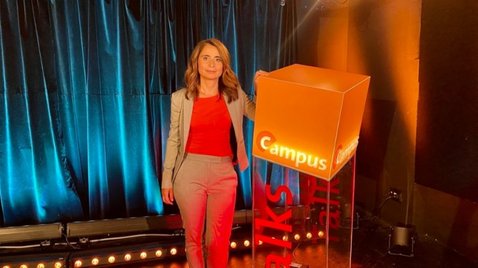
Today, international organizations are important actors in international politics and have contributed a great deal to conflict resolution and the reconciliation of interests between states. The withdrawal of the United States from international organizations, the rise of the People's Republic of China, which is founding new organizations, and informal cooperation formats pose great challenges to international politics and can become a threat to the global peace order. Eugenia Conceiçao-Heldt, Professor of European and Global Governance at the Hochschule für Politik at the TU Munich, shows how international organizations can overcome this crisis.
The lecture on September 28 at ARD alpha Campus Talks:
https://tinyurl.com/y3uuwjou
Link to the complete program:
https://tinyurl.com/y28se758
Climate Week 2020: where do we stand in climate policy?
Local extreme weather or consequences of climate change? Where do we stand in climate policy? 2020 will be the key year to reduce global greenhouse gas emissions, says Miranda Schreurs, Professor of Environmental and Climate Policy at the HfP. "We only have a few years left to drastically reduce emissions.
The whole interview in English here at Deutsche Welle.
For the first time, Friday for Future demonstrations will take place again. Miranda Schreurs points out the political significance of the youth protests, but also the need to achieve the climate goals.
The whole interview in English here at Deutsche Welle.
Interim report on the search for nuclear repositories
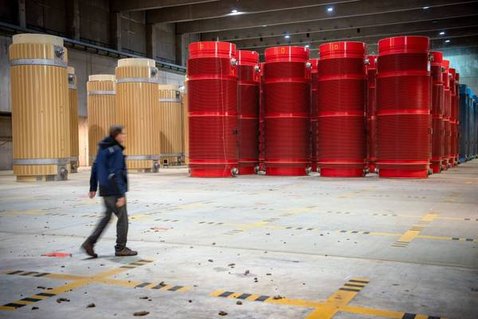
In the search for a nuclear repository for spent fuel elements from German nuclear power plants, the National Monitoring Committee supports the political process and accompanies it as an independent, pluralistic social body. Miranda Schreurs, Professor of Environmental and Climate Policy at the HfP, is the co-chair of the National Advisory Board.
In two interviews she comments on the interim report, which was presented on Monday, September 28.
Interview in the Bayerische Staatszeitung of 25.9.2020
Podcast of the Federal Agency for Civic Education, from minute 33.
Is the USA threatened by a civil war?
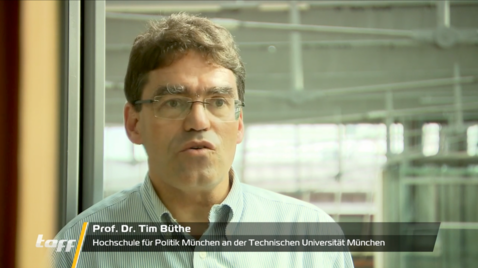
Incumbent Donald Trump does not want to commit to a peaceful transfer of office if he suffers an election defeat on November 3. In doing so, he is provoking armed conflicts between his supporters and opponents that could escalate into civil war. Tim Büthe, Professor for International Relations at the Hochschule für Politik at the TU Munich, comments on the tense political situation in the USA and warns that Trump tends to exaggerate provocatively, but that his threats must be taken seriously.
See the report on this in the TV magazine Taff on Pro7.:
https://www.prosieben.de/tv/taff/video/2020218-droht-den-usa-nach-trump-niederlage-ein-buergerkrieg-clip
Prof. Stefan Wurster in an interview with Bayern 2
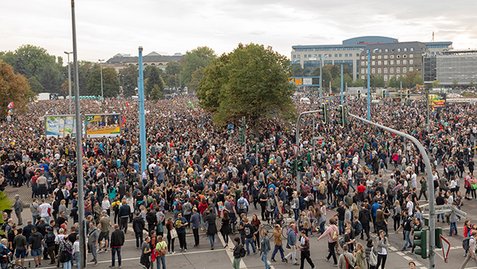
In an interview with Bayern 2, Prof. Dr. Stefan Wurster talks about the rethinking and change of course of the CSU after the demonstration in Chemnitz on September 1, 2018 and the mixed results of the Bavarian state elections in 2018.
You will find the article on the internet pages of the BR or as a recording (Copyright by Bayern 2).
Prof. Tim Büthe in an Interview with TUM.de
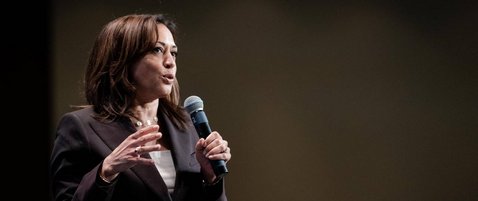
Prof. Tim Büthe in interview with TUM.de
In an interview with TUM.de, Prof. Tim Büthe talks about the appointment of Kamala Harris as the US vice presidential candidate.
You can find the complete interview here.
Prof. Schreurs on CGTN
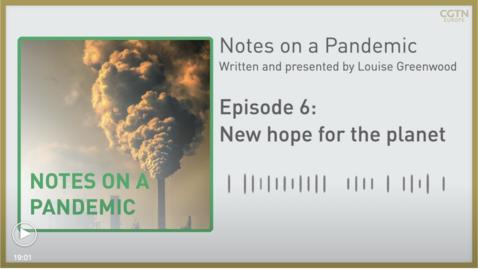
Prof. Dr. Miranda Schreurs talks in an interview with CGTN about the unexpected effects of COVID-19 on the global environment.
You can find the complete article here.
Prof. Schreurs from minute 4 and 50 seconds.
The availability of the content may be limited in time.
Prof. Wurster on ZDF and ARD
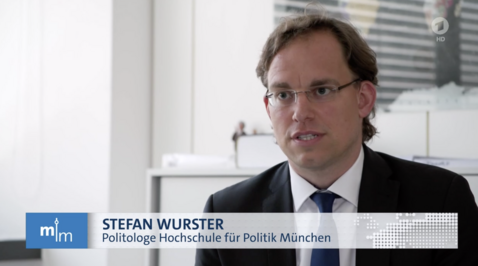
Prof. Dr. Stefan Wurster speaks in the ZDF-Morgenmagazin and in the ARD-Mittagsmagazin about the possible candidacy for chancellor of the Bavarian Prime Minister Markus Söder
You can find the complete articles here (ZDF) and here (ARD).
Prof. Wurster from 33 seconds (ZDF) and from about minute 8 (ARD).
The availability of content in media libraries may be limited in time.
Prof. Jürgen Pfeffer on ZDFzoom
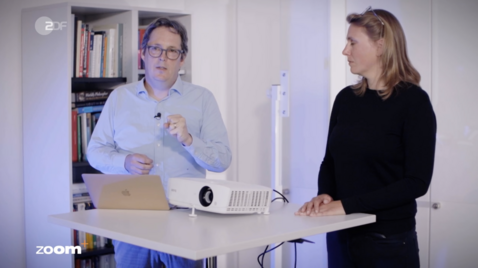
In the ZDF Zoom contribution, HfP Professor Jürgen Pfeffer and doctoral student Wienke Strathern investigate the spread of conspiracy theories in the social media.
You can find the complete article here.
Prof. Pfeffer from minute 8.
The availability of content in media libraries may be limited in time.
Prof. Steinert - Study on domestic violence during the Corona pandemic - UPDATE
More information on the first major representative survey on domestic violence during the Corona pandemic by Professor Janina Steinert can be found at:
https://www.tum.de/nc/die-tum/aktuelles/pressemitteilungen/details/36053/
https://www.deutschlandfunknova.de/beitrag/haeusliche-gewalt-pandemie-verstaerkt-faktoren
https://www.vice.com/de/article/5dzg3d/hausliche-gewalt-im-lockdown-mehr-therapieangebote-konnten-frauen-schutzen
https://www.zdf.de/nachrichten/panorama/coronavirus-gewalt-gegen-frauen-100.html
https://www.saarbruecker-zeitung.de/plus/corona-fuehrt-zu-mehr-gewalt-gegen-frauen-und-kinder_aid-51573093
https://pflege-professionell.at/de-haeusliche-gewalt-waehrend-der-corona-pandemie-erste-grosse-studie-zu-erfahrungen-von-frauen-und-kindern-in-deutschland
https://www.br.de/mediathek/video/abendschau-18062020-gewalt-gegen-frauen-eurofighter-auf-der-strasse-studiogast-kniespezialist-prof-hanno-steckel-av:5eaad0d2af31700014576e3b
https://www.arzt-wirtschaft.de/corona-quarantaene-immer-mehr-frauen-und-kinder-erleiden-haeusliche-gewalt/
Prof. Stefan Wurster in an interview with hr-iNFO
Prof. Dr. Stefan Wurster talks to hriNFO during the CSU party conference about the politics of the CSU and the Bavarian Prime Minister Markus Söder as well as his role during the corona crisis.
The complete interview (in german):
https://www.hr-inforadio.de/index.html
Portrait of Prof. Miranda Schreurs at Tagesspiegel Background Energy & Climate
In the portrait of the Tagesspiegel Background Energie & Klima, Prof. Dr. Miranda Schreurs talks about her childhood, research and the education of doctoral students, among other things.
You can find the complete portrait here.
Prof. Jürgen Pfeffer at OE1
Prof. Dr. Jürgen Pfeffer comments in the programme "diagonal stellt vor" in OE1 on the new edition of an intervention project by the French artist Sophie Calle from 1983 in the context of data protection and privacy.
The complete broadcast can be found here.
Prof. Jürgen Pfeffer in an interview with OE1
Prof. Dr. Jürgen Pfeffer talks to OE1 about the usefulness of analyzing big-data in the corona crisis.
You can find the complete interview here.
Professor da Conceicao-Heldt comments on the current corona crisis and warns against egoism in the EU
In an interview with Bayerischer Rundfunk, Professor da Conceicao-Heldt comments on the current corona crisis. She warns against egoism in the EU and calls on the union of states to develop a joint plan for reconstruction in a bid to emerge stronger from the crisis. The complete interview (in German) can be found here.
Prof. Stefan Wurster at M94,5
In an interview with the radio station M94.5, Prof. Dr. Stefan Wurster talks about the election in Thüringen and why it is having such a big impact.
The complete interview:
Prof. Jürgen Pfeffer in the Donau Zeitung
Prof. Dr. Jürgen Pfeffer talks to the Donau Zeitung about hate comments on the internet.
You can find the complete article here.
Prof. Miranda Schreurs in Yonhap News
Prof. Dr. Miranda Schreurs talks at Yonhap News about the problems in the search for a suitable nuclear waste disposal site.
You can find the complete article here (in Korean).
Prof. Miranda Schreurs on CNN
Prof. Dr. Miranda Schreurs talks on CNN about the difficult search for a suitable nuclear waste disposal facility.
You can find the complete article here.
Prof. Miranda Schreurs in the Münchner Merkur and Abendzeitung
The Münchner Merkur and the Abendzeitung report about the speech of Prof. Dr. Miranda Schreurs at the Fridays for Future Demo on 29.11.2019.
Prof. Miranda Schreurs at Bayern 2
Prof. Dr. Miranda Schreurs speaks in the Bayern 2 Podcast IQ-Magazin about the difficult search for a nuclear waste repository.
You can find the complete podcast here.
Prof. Stefan Wurster in the BR and Bayern & Region
Prof. Dr. Stefan Wurster will speak in BR and Bayern & Region on the topic "One Year of Free Voters in the Cabinet" and the campaign of free voters.
Prof. Stefan Wurster at Orsted
Prof. Dr. Stefan Wurster talks to Orsted about the climate offensive of the Bavarian Prime Minister Markus Söder.
You can find the whole article here.
Prof. Tim Büthe at ARD-alpha
Prof. Dr. Tim Büthe talks in an interview with ARD-alpha about the political landscape in the southern EU states.
You can find the complete interview here.
Prof. Miranda Schreurs in the Bayerische Staatszeitung
In an interview with the Bayerische Staatszeitung, Prof. Dr. Miranda Schreurs talks about the CO2 price, the expansion of renewable energies and more expensive domestic flights.
You can find the complete interview here.
Prof. Miranda Schreurs at the Federal Agency for Civic Education (Bundeszentrale für politische Bildung)
Prof. Dr. Miranda Schreurs speaks in an interview with the Federal Agency for Civic Education about the decisions of the Climate Cabinet.
You can find the complete interview here.
Prof. Stefan Wurster in the taz
Prof. Dr. Stefan Wurster comments in faz on the current environmental policy of the CSU.
You can find the complete article here.
Prof. Miranda Schreurs at E&E News
E&E News quotes Prof. Dr. Miranda Schreurs on "How world leaders have dealt with Trump's Paris withdrawal".
The full article can be found here.
Prof. Stefan Wurster at hr-iNFO
Prof. Stefan Wurster comments in hr-iNFO on the introduction of green issues into the politics of the governing parties and their effects.
You can find the complete interview here (only in german).
Copyright by hr-iNFO
Prof. Miranda Schreurs at CNN
Prof. Dr. Miranda Schreurs comments on the Green New Deal Pact on CNN.
You can find the complete article here.
Prof. Miranda Schreurs at CNN Business
Prof. Dr. Miranda Schreurs talks in an interview with CNN-Business about the dismantling of the Mülheim-Kärlich nuclear power plant.
You can find the complete article here.
Prof. Miranda Schreurs at DW
Prof. Dr. Miranda Schreurs speaks in an interview with "Deutsche Welle" for the programme "Der Tag" and "The Day" about climate change, the opportunities and the role of the state.
The complete articles can be found at the following addresses:
https://www.dw.com/de/der-tag-mit-raimund-stündel/av-46659208
https://www.dw.com/en/tv/the-day/s-32613
HfP students at ARD-Alpha
Three master students from the Hochschule für Politik in München and a design student present their project "EU-for-You" on the ARD-Alpha programme.
The complete article and further background information can be found here.
Prof. Stefan Wurster in the BR
Prof. Dr. Stefan Wurster talks in an interview with Bayerischer Rundfunk about the current "flight of the Greens".
You can find the complete interview here.
Prof. Tim Büthe at Pro7
Prof. Büthe comments on Angela Merkel's speech at Harvard University as a symbolically important contribution to transatlantic relations.
You can find the complete article here.
Prof. Eugenia da Conceição-Heldt in the SZ
The Süddeutsche Zeitung reports on the awarding of the European Medal and this year's award winners* (including Prof. Dr.Eugenia da Conceição-Heldt ).
You can find the complete article here.
Prof. Simon Hegelich at FOCUS Online
FOCUS Online quotes Prof. Dr. Simon Hegelich on the topic "Data-driven party advertising in social networks".
You can find the complete article here.
Prof. Miranda Schreurs in the Bild
Prof. Dr. Miranda Schreurs in an interview with the Bild newspaper on the subject of "climate emergency" in Constance.
You can find the complete article here.
Prof. Miranda Schreurs in an interview with ABC
Eight years after the devastating earthquake in Japan, which caused a tsunami and the nuclear catastrophe of Fukushima, Prof. Miranda Schreurs talks in the ABC interview with Philip Adams about the consequences and what changes this disaster brought about.
The full interview can be found here here.
Prof. Dr. Stefan Wurster in "Freie Presse Chemnitz" and at detektor.fm
Prof. Dr. Stefan Wurster talks about the petition for a referendum "Save the bees", environmental protection and the consequences for the state government in the article with "Freie Presse Chemnitz" and in the radio report at detektor.fm.
The contribution of the "Freie Presse Chemnitz" can be found here.
You can find the radio report of detektor.fm here.
Prof. Dr. Tim Büthe in "The Hill"
In the article published by "The Hill", Prof. Tim Büthe of the Munich School of Politics and his colleague Prof. Joseph Grieco (Duke University) write why Great Britain needs a second Brexit referendum.
You can find the complete article here.
Prof. Dr. Stefan Wurster at BR24
Prof. Dr. Stefan Wurster comments on BR24 Aiwanger's difficult start in government.
The full report can be found here.
Prof. Dr. Lisa Herzog at the Global Young Academy
Prof. Dr. Lisa Herzog explains her work as a scientist at the Global Young Academy (GYA).
You can find the video here.
Prof. Dr. Stefan Wurster in the AZ
Prof. Dr. Stefan Wurster in an interview with AZ on the future of Horst Seehofer.
You can find the complete article here.
Prof. Dr. Stefan Wurster on Munich TV
Prof. Dr. Stefan Wurster in an interview with Munich TV on the formation of a government in Bavaria.
You can find the complete article here.
Prof. Dr. Lisa Herzog in Zeit
Prof. Dr. Lisa Herzog has published an article in the Zeit on digitizing the world of work.
The article is available here .